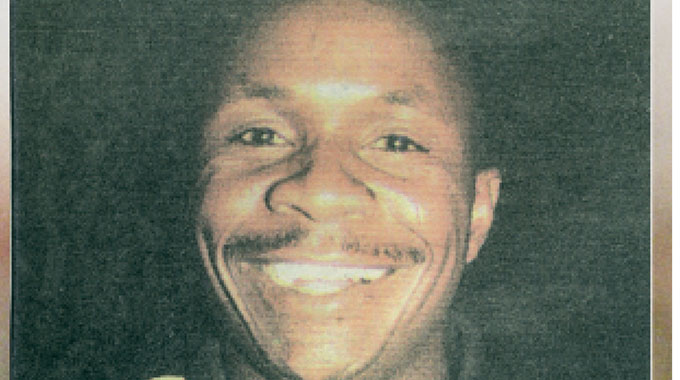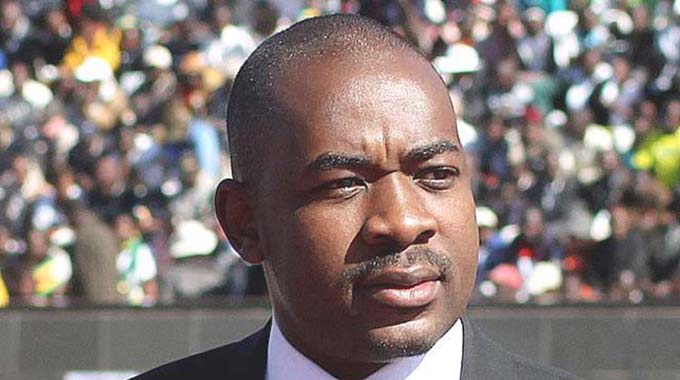George’s superman heroics

Robson Sharuko Senior Sports Editor
RARELY has a 12-game continental inter-club football adventure — whose success story was written more by the combination of the dogged collective spirit of men intent to write their names in the stars than flashes of genius from a few magicians — been underpinned to one moment of goalkeeping brilliance as was the case with the Dynamos Class of ‘98.
Sadly, when the heroes of that DeMbare campaign, which almost transformed them into champions of Africa, 20 years ago are routinely mentioned, the name of that goalkeeper usually doesn’t feature in the nostalgic conversations about a golden time when these immortals came of age on the ultimate stage that separates boys from men.
You hear about Memory Mucherahowa, the indomitable leader of the pride, for a team, which fittingly parades a logo of a lion on their blue jerseys, a punishing defence that gave away very little all season and suffocated life out of their rivals and Lloyd Mutasa’s heroics in Nigeria.
You also hear about coach Sunday Chidzambwa’s technical master-class, which propelled them to touch the heavens.
Even the name of Tonderai Mutambikwa, and his goals, feature prominently in the narration and so do the names of Makwinji Soma-Phiri, another goal-scoring hero, and Desmond Maringwa, whose performances betrayed his youthfulness as he provided glimpses of a future in which he was supposed to transform himself into one of the greatest to wear this iconic jersey had fate not brutally ruled otherwise.
For, just two years after this campaign — just as he started to bloom into the real deal in which he even had overshadowed Quinton Fortune, then good enough to play for Manchester United, in an ill-fated World Cup qualifier at the National Sports Stadium — Gazza’s career was virtually over at the young age of 22.
Whoever gave him that nickname, borrowed from another Gazza from England, Paul Gascoigne, which seemingly burdens its bearer with the punishing load of the cruel fate of a career always meant to be cut short by the ravages of injuries, must be found, charged and tried to answer for the sins of daring this fine football specimen with this stricken name.
The original Gazza was just 24, a playmaking genie destined for greatness, and with a World Cup starring role at Italia ’90 in his curriculum vitae, when this demon struck, when a damaged cruciate ligament in his right now on the big stage of the ’91 FA Cup final at Wembley, effectively closed his path to the greatness, which his special talent had promised in abundance.
And this blue Gazza, their Gazza, would suffer a similar fate in August 2000 when a freak injury at Barbourfields effectively closed his path to greatness just two years after having been thrown, as a mere teenager, onto the battlefront during that ’98 Champions League campaign, and distinguished himself with performances that made a mockery of his youthfulness.
It wreaked a move to Spanish side Celta Vigo, where he had been earmarked to replace Frenchman Claude Makelele, who had left for Spanish giants Real Madrid, and although Maringwa, who underwent a number of operations to repair his battered knee, would play on until 2009, he was never the same Gazza who had charmed hearts, and fuelled expectations of greatness, before his injury.
The ‘Ms’ — Maringwa, Mucherahowa, Makwinji, Mutasa, Mutambikwa, Masango, Musanhu, Muzadzi and Mhofu or Marimo as he was known back then — will always have their names discussed in glorious terms whenever that DeMbare Champions League campaign of ’98 is relived.
Sadly, it’s the priceless role played by one other ‘M’, the late Mandizvidza (George), in a coastal Mozambican city whose identity initial has an initial ‘M’ (Maputo), and at a stadium whose name has an initial ‘M’ (Machava), is barely mentioned among those who made this miracle happen.
Yet, on May 10, 1998, in the second leg of the second round of that Champions League adventure, George Mandizvidza produced something which, in cricket terms, would have been called a gem of an innings on a day when, an ordinary performance by the goalkeeper, could have destroyed this campaign in its infancy with the Mozambicans winning that decisive game and a place in the group stages.
Two weeks earlier, Ferroviario de Maputo had come to Harare and held Dynamos to a 1-1 draw, giving the Mozambicans the advantage ahead of the second leg, where they needed just to prevent the Glamour Boys from scoring to advance to the group stages by virtue of the away goals rule.
And having put four past eight-time Mauritian champions Sunrise in the previous round, the Mozambicans had a spring in their step ahead of the match and for long periods in the first half of their contest against Dynamos, it was a contest between the hosts and Mandizvidza in what was a relentless bombardment of the visitors’ goal.
Then, in the 36th minute, it happened.
An attack down the right channel caught the overworked Dynamos defence in an afternoon nap, their strength having been drained by a brutal combination of the punishing shift they had put in and the very humid coastal conditions at sea level, and the cross was as precise as they come.
The header, from close range, was well placed and the tiring Mandizvidza, either dazzled by the day’s huge workload or trying to steal a march on the forward, flung himself to his left – as if he was reading the striker’s intentions – even before the ball had made any connection with the head.
But the ball was directed the opposite side and Mandizvidza, already in mid-air and drifting towards the wrong side, somehow twisted his diminutive frame – in a defiance and mockery of both the forces of gravity, the fundamentals of logic and a tired body that had taken a battering in more than half-an-hour of a ferocious battle – to turn towards the right.
His motion enabling him to have a finger-tip touch to the ball at the very last minute, and turn it over the bar.
“In that match in Mozambique, the late goalkeeper George Mandizvidza produced one of the best saves that I have seen in my career when he turned mid-air to thwart a goal-bound shot,’’ Mucherahowa, in his autobiography, “Soul Of Seven Million Dreams”, wrote.
“This led the home team’s fans to believe that his glove bag contained juju and one fan ran onto the pitch to grab it. Dynamos team doctor Chifamba had to run after the supporter to get the bag back. It was a circus.
“Another supporter also tried to attack Mandizvidza, but me, Zviripayi and Kaitano Tembo overpowered him.
“That was before another supporter also invaded the pitch and grabbed the Zambian referee, asking him to give them a penalty.
“Whether the referee agreed to be bribed or not, I do not know. With 15 minutes to go, he awarded the Mozambicans a penalty, which fortunately for us, they missed and we won the match.
“I had never witnessed so much violence as that which ensued after our qualification to the mini-league phase.
“It took us almost two hours to get out of the stadium and that was only after the intervention of the Mozambican army.’’
Mandizvidza didn’t feature in the group stages after being axed following an internal revolt, and four years later, he was dead and, his low-key burial at Granville Cemetery on February 16, 2002, which was shunned by the ZIFA leadership back then, probably spoke volumes about a great footballer – who in life and death – was never accorded the respect he deserved.










Comments